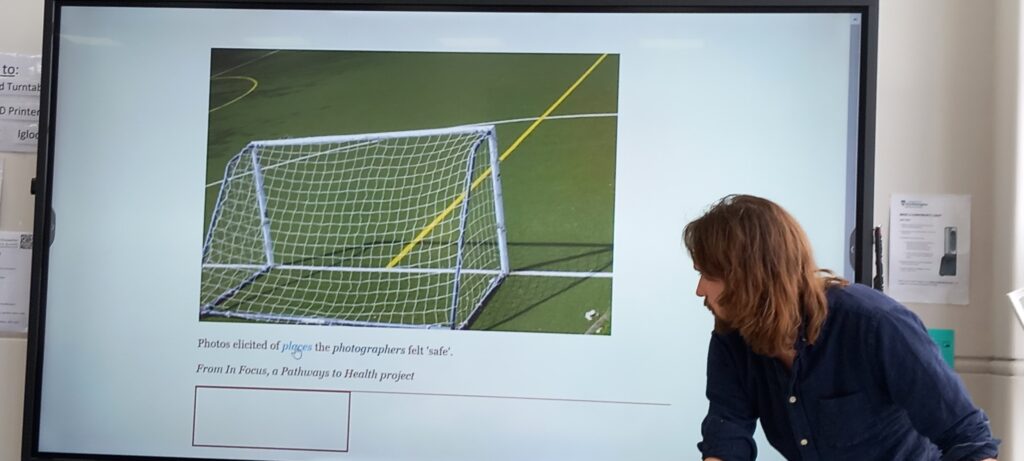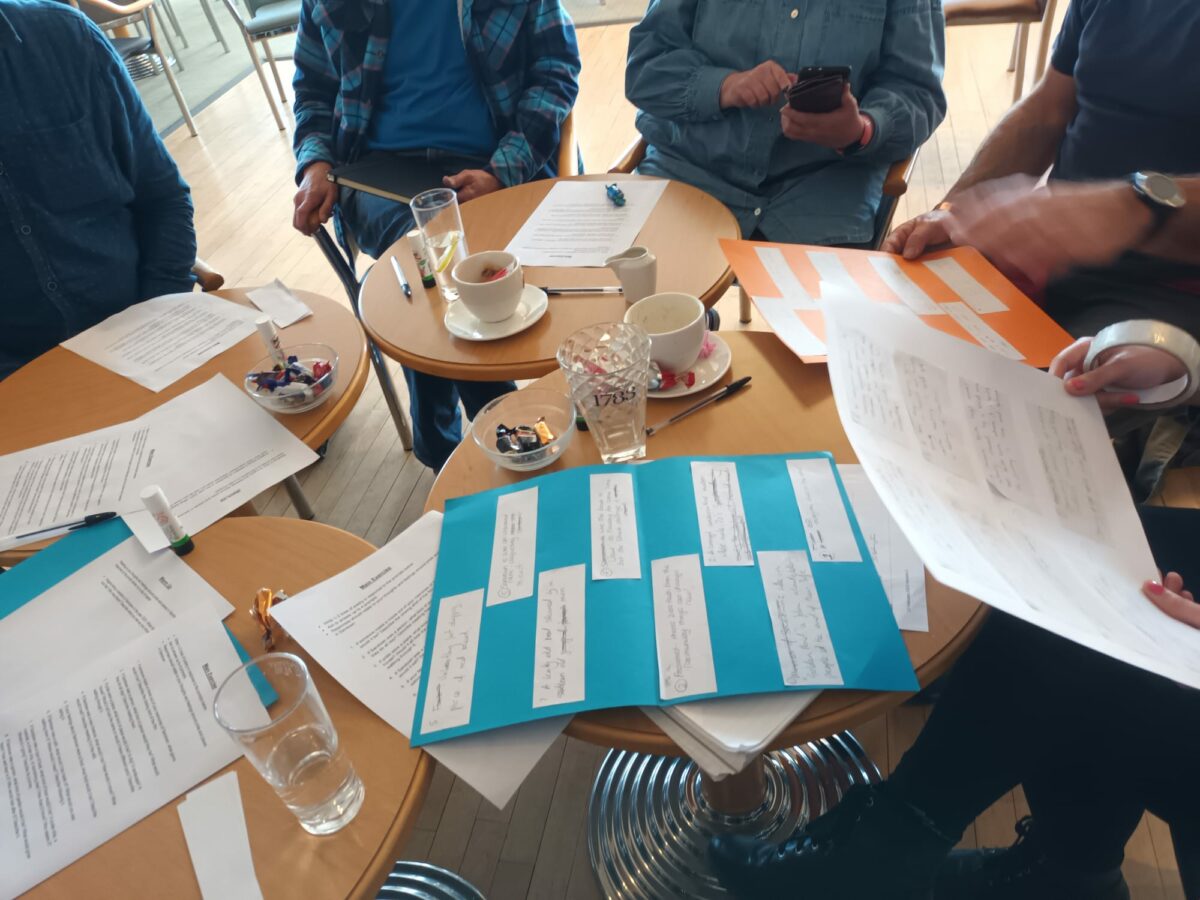Creative methods have been central to our practice. We worked with local artists in each place, and they supported our community engagement and the development of our creative methods. These artists also allowed us to co-produce work with communities and ensured that we could share the findings of our research with the people that contributed to it.
The Ragged Map
Michelle Rumney’s installation, titled The Ragged Map, was displayed in the Royal Arcade in November and December 2021. Inspired by other people’s ‘best bits’ of Boscombe, The Ragged Map was created by playing a game walking the streets, both in person and online via Street View. In the Towns and the Cultural Economies of Recovery workshops, people who’d never met before started sharing their own stories about these places with each other—stories of people making a difference within Boscombe’s local communities. Michelle asked people to doodle their own maps of two places they’d heard about during the workshops—from the (temporary) refugee welcome and meet-up at San Remo Towers to the Secret Garden to ‘The Sea, The Sea’.
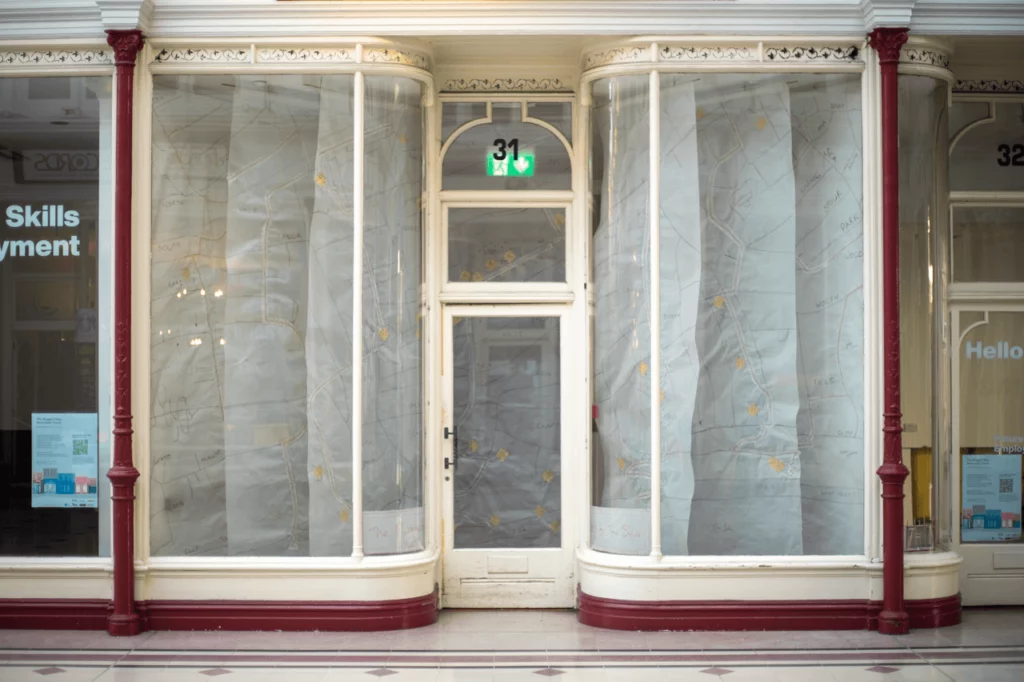
Darlo Matters
In Towns and the Cultural Economies of Recovery, Darlington participants worked with words and doodles to create miniature books—from which the the self-identified disabled writer, activist and creative practitioner Lisette Auton devised a poetic and lyrical essay. Details, images and artefacts were produced from the workshops, and Lisette Auton’s poem Darlo Matters was exhibited at the Darlington Hippodrome and at Darlington Railway Station from early November until the end of 2021.
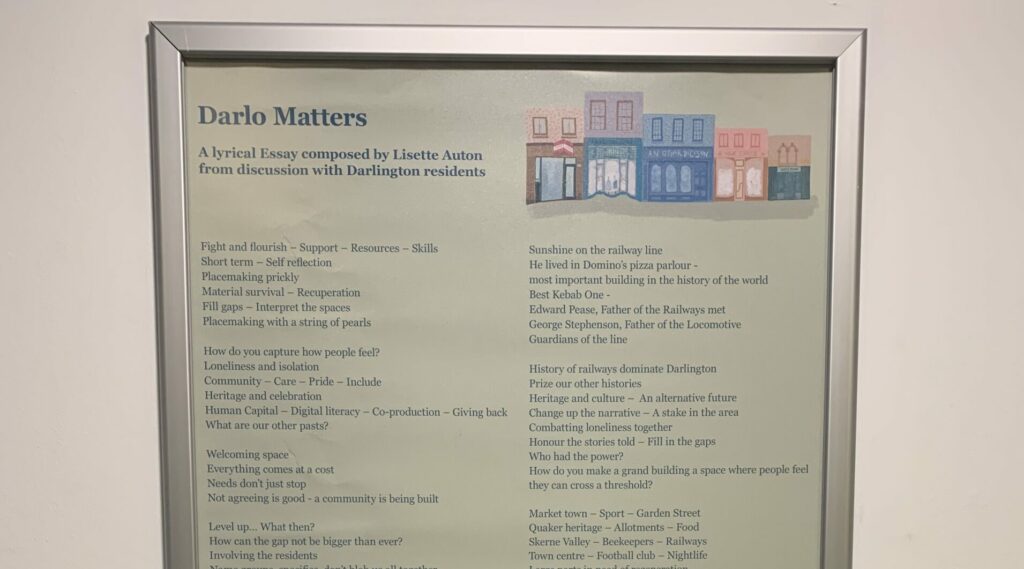
Hope for Hereford
On October 23rd 2021, Toni Cook, a community theatre practitioner, and young people from Point of View took-over the Powerhouse in the Maylord Centre, Hereford. They read poetic works that had been created in response to a Towns and the Cultural Economies of Recovery online workshop, discussed young people’s views of Hereford, and the changes that they feel are needed for the future of the city.
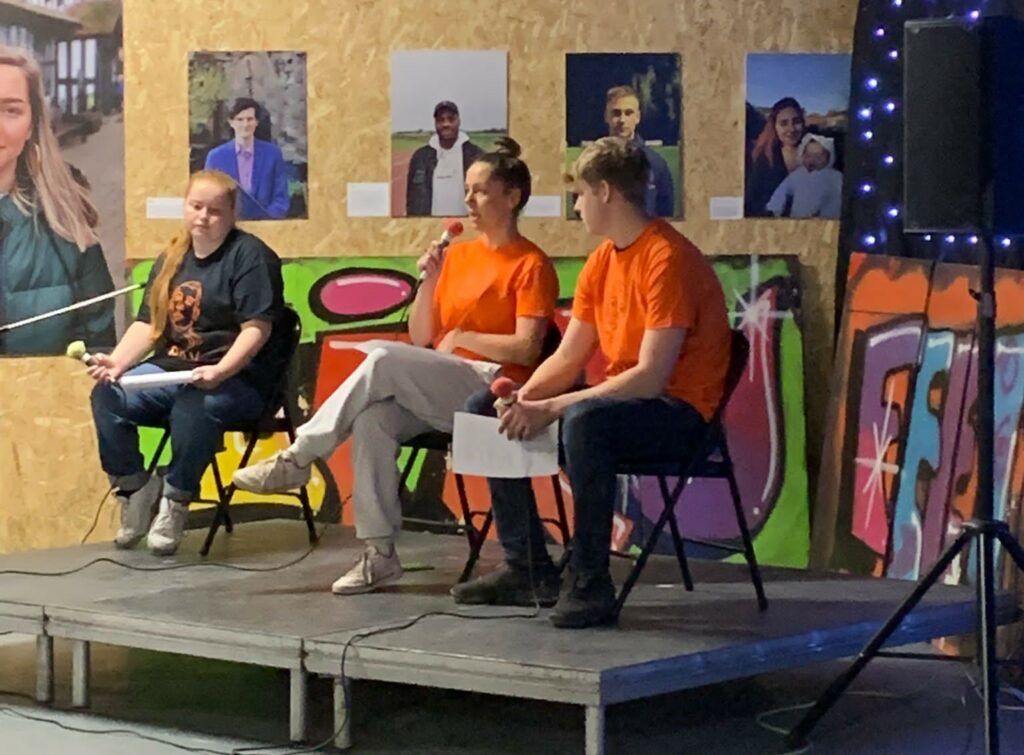
What Makes Good Public Art?
What is the value of artists? Who is deciding this value? How do these conversations change local culture in Southend? In June 2021, Towns and the Cultural Economies of Recovery asked artists Emma Edmondson and Lu Williams to host ‘The Southend Salty Pub Quiz’, compiling their experience of public art projects, proposals, pokes and prods from councillors, consultants and commissioners. They invited the public and those with institutional power to take part and the video What Makes Good Public Art? was produced from their answers.
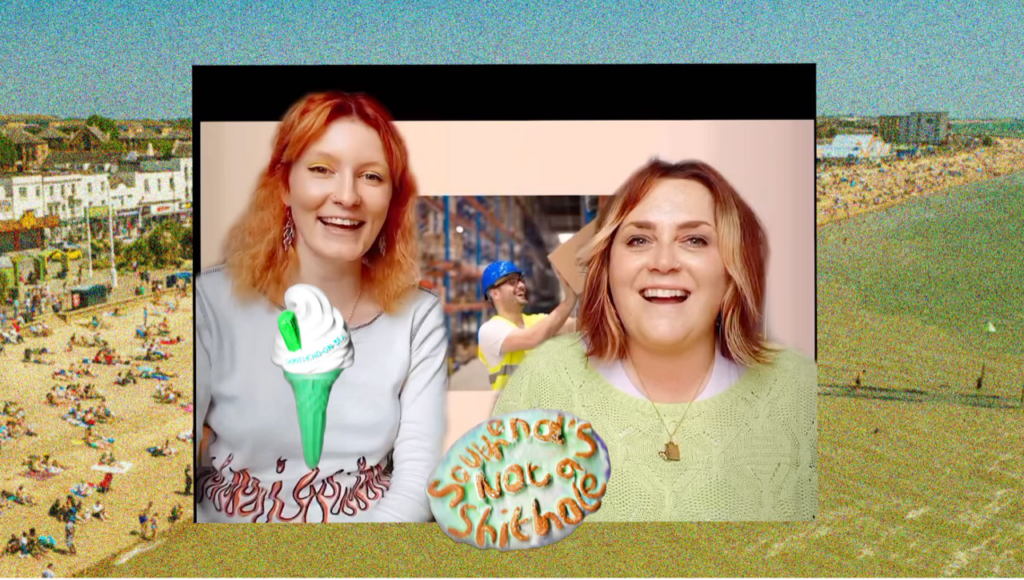
Visions of Sandown
In the Neighbouring Data practitioner workshop, the sound artist Hannah Kemp-Welch produced an audio-visual piece illustrating different visions of Sandown’s future that used coloured text and field recordings based on community consultation responses. Sandown residents were asked what they thought the town might be like in a hundred years’ time. As a socially-engaged artist, Hannah presents the written responses in overlapping categories, illustrated with recordings from the area and other sounds that bring their visions to life. Feeling Towns, in collaboration with officers at the Isle of Wight Council, had explored the meaning and value of place, regeneration and the economy in the town.
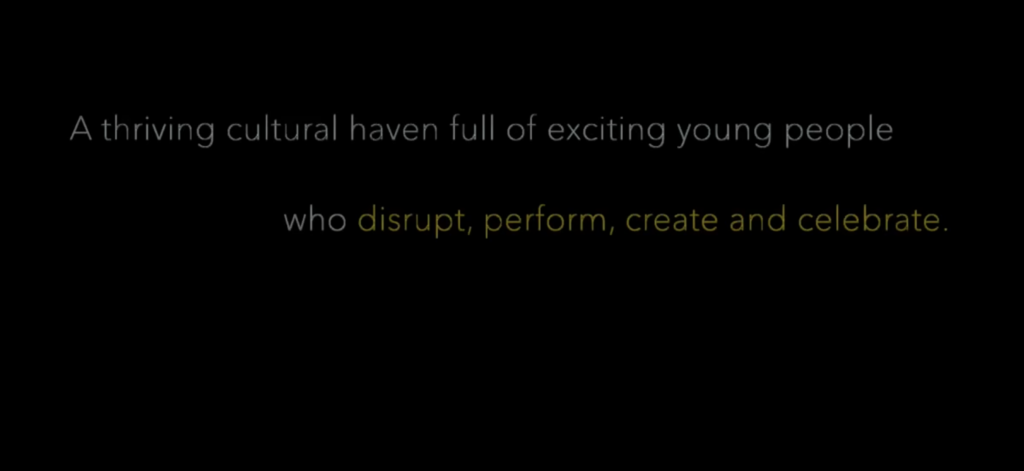
A Tale of Two Towns
In the Neighbouring Data practitioner workshop, the writer and artist Kabe Wilson produced five satirical online newspaper articles that responded to a fictional government initiative for twinning together towns in the UK . Based on Feeling Towns research, the articles span a period of one year, from the initiative’s first discussion in Parliament to the anniversary of the first ‘Darlington-to-Dorchester’ festival. These five identifiable caricatures of UK newspapers cover different points on the political spectrum and tensions between national and local press, showing the issues raised by disseminating place-based art.
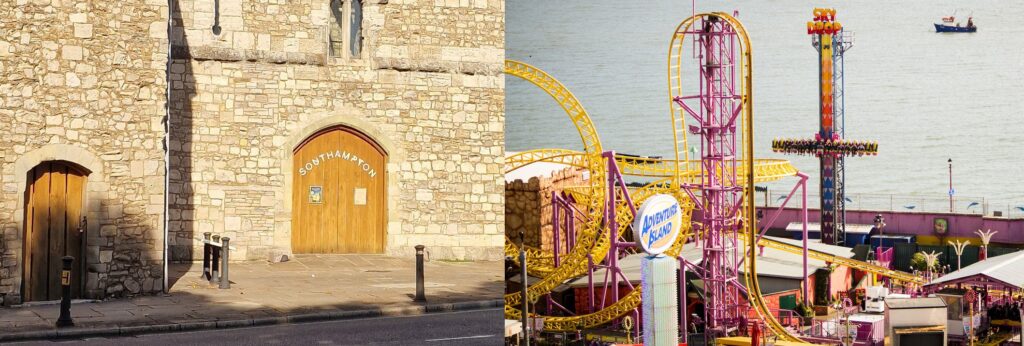
The Neighbourhood Insight Engine
In the Neighbouring Data practitioner workshop, the author Joey Jones took examples from the resource pack and connected them together through a website portal. Users could take time with each example, navigate connections between them, and record insights and reflections as they traversed the pages. It uses the hypertextual approach to encourage users to engage with all parts of the qualitative data to find a rich set of connections. Joey likened it to printing out sheets of paper, pasting them to a wall, and linking them together with string. The Engine takes advantage of the qualities of the hypertext platform by enabling non-linear and non-hierarchical reading experiences.
